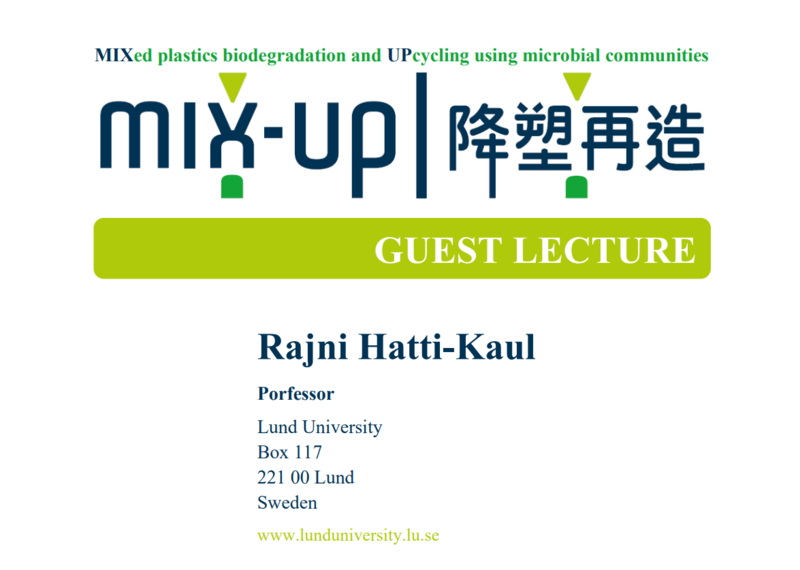The current plastic system, characterized by dependence on fossil resources and limited recycling, is highly unsustainable. Decoupling production from fossil feedstock and design of the plastic for enhanced reuse and recycling are key to transition to a circular plastic economy, saving non-renewable energy and reducing greenhouse gas emissions besides the plastic waste. This presentation will briefly describe our work within a multidisciplinary Swedish research program STEPS (Sustainable Plastics and Transition Pathways), done in collaboration with stakeholders representing a value chain, with an aim to support transition towards sustainable plastic products and system. The research covers three main areas: developing clean technologies for production of building blocks from renewable feedstock as well as recycled plastics, design of biobased polymers for enhanced recyclability, and assessing the role of governance in facilitating transition. Some examples of biobased aliphatic and aromatic building blocks made using green chemistry and biotechnology will be provided. Of particular interest has been building a furan platform as a source of several known and novel building blocks. Polymers with rigid spirocyclic diol monomers made from furan and vanillin, with varying properties and potential recyclability have been produced. Application potential of these new polymers for coatings and textiles has been investigated. Further research has involved review of the carbon lock-ins throughout the existing plastic value chain and identification of possible mitigation pathways for each stage of the plastic life cycle. Overcoming these carbon lock-ins and achieving zero-carbon targets for the sector by 2050 will require thorough systemic change to how plastics are produced, used and recycled.
Announcement: Guest Lecture in November!
We are happy to welcome our friend Prof. Rajni Hatti-Kaul for a guest lecture titled "STEPS – Research Program on Transition Pathways Towards a Sustainable Plastic System" on Friday, 4 November 2022, at 11 a.m. (UTC +1).


